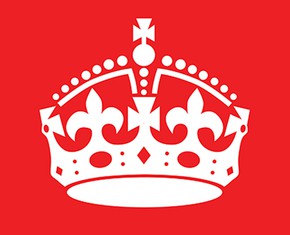The views expressed in our content reflect individual perspectives and do not represent the authoritative views of the Baha'i Faith.
Colorful wood-block prints of Nelson Mandela be-speckled the blue cardboard shape bearing the students’ favorite Nobel Peace Prize winners. Each young artist knew Mandela’s story well and could speak articulately about their hero several years before they painted the display that would travel to Oslo’s Nobel Peace Prize museum.

I remembered their eyes shining in primary school, the first time they first heard the stories of his early years, of his quickly tamed hubris when he traveled away from his village, of his angst as he grappled with the concepts of unity and nonviolence to unravel apartheid (apart – hate, as we defined it for these children whose ancestors from Africa, Belize and Mexico knew the concept well).
We taught about Mandela’s 27 years of imprisonment and release during the 1990’s, at the onset of two decades of anti-apartheid leadership, while a nation, a continent, a world, still held its breath to see if the experiment would work. Still, in those days, the hands of the youth deftly painted echoes of smiles around Mandela’s eyes and the deep creases of worry turned to the contentment of convictions on his forehead and cheeks. They drew the face mostly from memory. The students thought of him then as an emancipated prisoner of conscience on the cusp of a new era of service to humanity. This graduation alone made him their hero. After proving, through leadership with dignity, that the goals of unity and forgiveness are more precious than venomous victory, Mandela now belongs to the ages.
Upon the passing of this global hero, I contacted a colleague, Kully Zipethe, an educator who works with students in South Africa, and also serves as a member of the national governing body of the Baha’is there. Ms. Zipethe wrote back the following report on December 9th:
…To respond to the passing of our beloved Mandela, again this week since his passing, it has been quite awesome and overwhelming in the country. The ten days of the country’s mourning period are so full of activities that it is difficult to catch up what’s going on…The Faith is one of the recognized major religions in the country. From the first day, the National Spiritual Assembly issued a statement on behalf of the community…A statement was broadcast on National television where I had given a short talk on Mandela. At his hometown the Baha’i Faith was officially represented at the memorial. – a prayer and a message to his family was given by Baha’is.
One Baha’i, Ntsikelelo Mashologu, when asked to give an impromptu radio interview, shared his perspective on “the influence of Tata Mandela on the Baha’i community,” explaining that he “correlated his outstanding qualities with what the Faith urges us all to demonstrate in deeds as we strive to build a united world.”

Mr. Mashologu continued: “I mentioned that his self-sacrifice, enduring tenacity to pursue the cause of a united South Africa free of discrimination, his untiring discipline, generosity, forgiveness and humility are qualities which he put into action to such an extent that we have seen the power of such attributes. It is in demonstrating these qualities in his life that he affected the Baha’i community as well as other Faith communities, because these are virtues that the Baha’i Faith urges us to demonstrate at all times in our lives.
“… I emphasized that an unshakeable faith that the unity of mankind is an achievable and necessary goal is the key to further progress and gave this quotation:
Nothing shall be impossible to you if you have faith. ….. As ye have faith so shall your powers and blessings be. – Abdu’l-Baha, Baha’i Scriptures, page 504.
A group of Baha’i worshippers in Durban also turned their sorrow into joy by holding a children’s party to honor Madiba’s legacy of helping the youth, Ms. Zipethe reported, because “Nelson Mandela was a strong ambassador of their faith’s core principles, and they want their children to know what it means to live a life for others. They say Madiba is the perfect example.”
South African Baha’i representative Hannah Mangenda said at the meeting that while most children are too small to remember Madiba, it is important that they learn that he existed. She commented: “The biggest ideal that we identify in him, that is really the fundamental basis of the Baha’i faith, is unity and diversity. So the idea of not judging each other because of our colors, backgrounds, religious, age, sex…I think that is something he exemplified in such a wonderful way”.
So the children of another generation will remember. The victory of this ideal, in one moment of history, liberated Mandela as a prisoner of conscience. Through the stories of his humble daily deeds and struggles, his example can liberate the next generation from the prejudice that might otherwise cripple their own sense of conscience.
















Comments
Sign in or create an account
Continue with Googleor